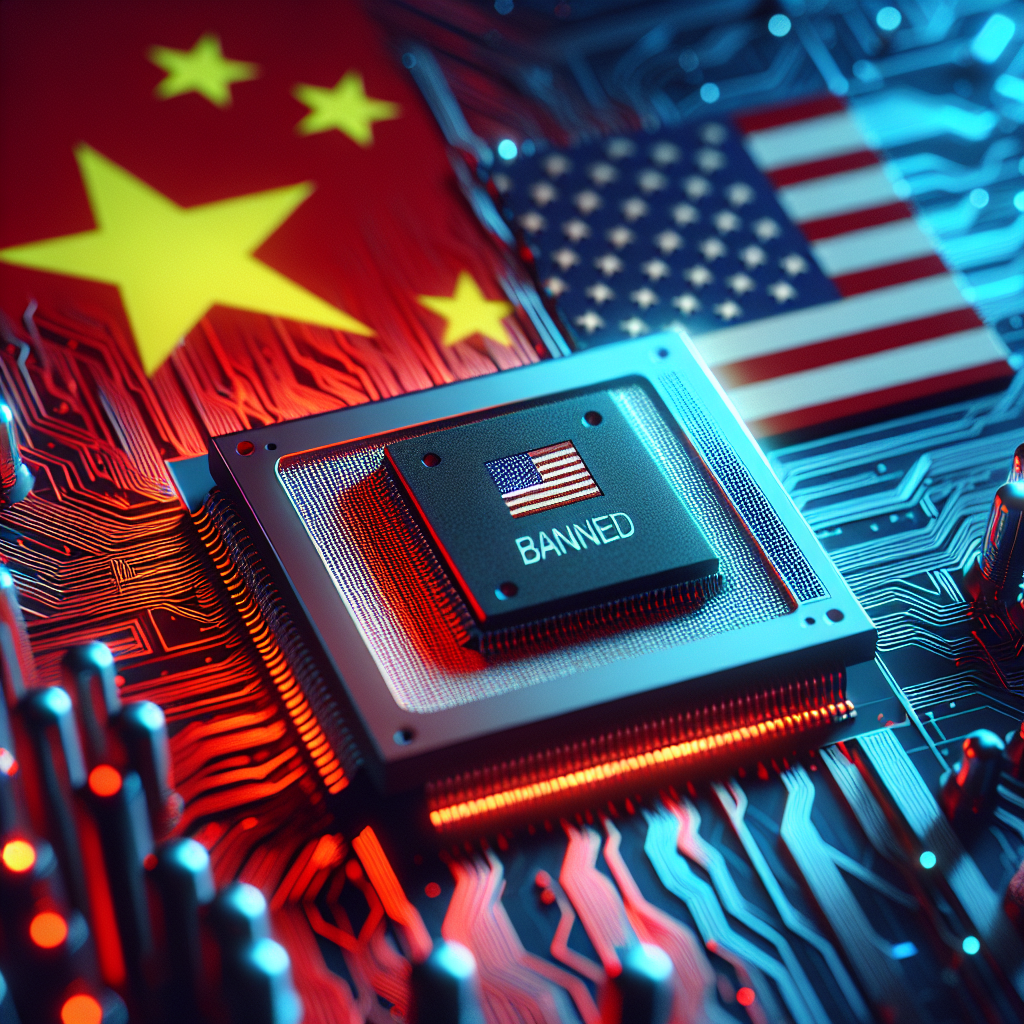China Bans Nvidia AI Chips: Tech War with the US Escalates
China has banned its tech giants from purchasing Nvidia AI chips, marking a significant escalation in the ongoing technological cold war with the United States. This decision could reshape the global AI landscape as China pushes to develop its domestic semiconductor industry.

China Restricts Nvidia AI Chips in Escalating Tech Rivalry
In a significant move that intensifies the technological competition between global superpowers, China's Cyberspace Administration (CAC) has banned major Chinese technology companies from purchasing Nvidia's artificial intelligence chips. This prohibition specifically targets products like the RTX Pro 6000D, which was specially designed for the Chinese market to comply with US export restrictions.
Tech giants including ByteDance (TikTok's parent company) and Alibaba are now forced to look elsewhere for their AI computing needs, potentially accelerating China's push toward technological self-sufficiency.
A Strategic Decision with Global Implications
This ban comes at a critical moment, as Chinese companies had reportedly begun testing and ordering tens of thousands of these specialized chips. The news sent Nvidia's stock down approximately 3%, highlighting the market's concern about losing access to what was once one of Nvidia's most lucrative markets.
Nvidia's CEO Jensen Huang expressed his disappointment but acknowledged the broader geopolitical context: "We can only serve a market if the country wants us to. I'm disappointed by what I see. But there are bigger agendas between China and the United States, and I understand that. We'll be patient about it."
China's Push for Technological Independence
The CAC's decision appears to be part of a larger strategy to bolster China's domestic semiconductor industry. By restricting access to foreign technologies, Chinese authorities are creating both necessity and opportunity for local alternatives to flourish.
Companies like Huawei and Cambricon are positioned to fill the gap left by Nvidia. According to industry sources, Chinese regulators believe that domestic AI processors have reached performance levels comparable or even superior to the Nvidia products that are permitted under US export controls.
This move represents a significant shift in China's approach to technology development, prioritizing independence over access to cutting-edge foreign technology.
Nvidia Loses a Key Market
For Nvidia, this ban represents a substantial blow. China previously accounted for up to 17% of the company's total revenue. Analysts estimate that trade restrictions could cost Nvidia between $8 billion and $16 billion annually.
The company's market share for AI data center chips in China has already dropped from a dominant 90% to approximately 50%, as local competitors gain ground. An industry insider noted, "The consensus now is that there will be enough domestic supply to meet demand without having to buy Nvidia chips."
This development could accelerate the creation of hardware-independent AI frameworks, potentially benefiting the entire industry by breaking dependence on Nvidia's CUDA software platform.
The Global AI Race Intensifies
China publishes more AI research papers than any other country in the world, demonstrating its commitment to advancing in this crucial technology. Rather than focusing solely on raw computing power, Chinese researchers are increasingly emphasizing efficiency—developing techniques to extract more performance from available hardware.
This approach may prove especially valuable as domestic chip production ramps up, potentially allowing Chinese AI systems to achieve competitive results despite initial hardware limitations.
A New Phase in US-China Tech Competition
This chip ban marks yet another chapter in the ongoing technological rivalry between the United States and China. The US has implemented multiple waves of export controls aimed at limiting China's access to advanced semiconductors, citing national security concerns.
China's response has been to accelerate its investments in domestic semiconductor research and production. The country has pledged hundreds of billions of dollars to develop its chip industry, with the goal of reducing reliance on foreign technology.
This latest move suggests that Chinese authorities now believe their domestic alternatives have progressed enough to risk cutting ties with a leading global supplier like Nvidia.
Looking Ahead: Implications for the Global Tech Landscape
As this technological decoupling continues, we may see the emergence of parallel technology ecosystems—one centered around US and Western technology, and another built on Chinese alternatives. For global companies, navigating these diverging standards and supply chains will present significant challenges.
For consumers and businesses worldwide, this competition could ultimately drive innovation, as both sides race to develop more advanced technologies. However, it may also lead to compatibility issues and higher costs due to duplicated research efforts and fragmented markets.
The ban on Nvidia chips is more than just a procurement decision—it's a clear signal that China is committed to charting its own technological path, regardless of the short-term costs. As this technological cold war intensifies, its impacts will be felt far beyond the semiconductor industry.